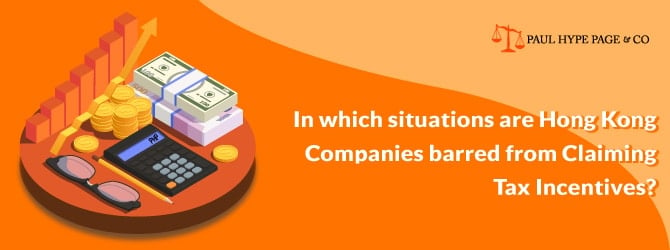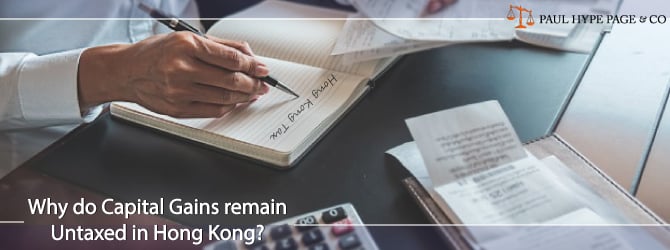In Hong Kong, the personal income tax rate is a tax collected from individuals and is imposed on different sources of income like labour, pensions, interest, and dividends. The benchmark used for international standards refers to individuals’ top marginal tax rate.
Revenues from the personal income tax paid by taxpayers are an important source of income for the government of Hong Kong.
According to the latest statistics, Hong Kong’s government received HK$341.4 billion in tax revenue during the most recent tax year.
Hong Kong’s personal income tax laws have a long history. The first major income tax law in Hong Kong was the Inland Revenue Ordinance. This law was introduced in 1947. It imposed income taxes throughout Hong Kong and was based on similar tax laws in various British colonies.
Thus, although Hong Kong is no longer a Commonwealth country, its tax laws are similar to those of other Commonwealth countries. Review committees that refined Hong Kong’s income tax laws were established in 1954 and 1967 respectively.
A period of rapid economic growth in the 1970s made Hong Kong one of the world’s leading hubs for international trade, business activities, and finance. Therefore, to accommodate this economic growth, further tax reforms were required to be introduced. This in turn led to the introduction of a third review committee.
Despite this fact, Hong Kong’s colonial administration rejected the recommendations that had been proposed. There would be no further changes to Hong Kong’s tax laws until 1998 when several concessions were introduced. Another review committee was also established in 2002
Personal Income Tax Rates Imposed on Locals
In Hong Kong, personal tax is often referred to as salary tax. Both corporate and personal tax rates in Hong Kong are some of the lowest in the world. Hong Kong’s salary tax rates follow a progressive tax rate system instead of a flat tax rate system. There are five marginal tax brackets 2%, 6%, 10%, 14%, and 17%.
The key features of Hong Kong’s salary tax are as follows:
- Individuals are taxed at progressive rates on their net chargeable income, which is defined as assessable income after deductions and allowances. These rates start at 2% and end at either 17%. or at a standard rate of 15% on net income, whichever is lower. In Hong Kong, net income is defined as income remaining after deductions.
- There are no taxes on capital gains, dividends, or inheritance in Hong Kong.
- Hong Kong follows a territorial principle of taxation. This means that individuals are taxed only on income that has been earned in Hong Kong.
- Hong Kong resident individual taxpayers can potentially reduce their tax burden through the use of personal assessment. Under personal assessment, tax is calculated at progressive tax rates on the aggregate income from all sources.
Comparatively Low Progressive Tax Rates in Hong Kong
The progressive rates of tax imposed on an individual’s net chargeable income in Hong Kong are as follows: those who have earned HK$0 to HK$50,000 in net chargeable income over a tax year are to be taxed at a 2% rate.
Taxpayers who have earned between HK$50,001 and HK$100,000 are taxed at 6%. Earners of between HK$100,001 and HK$150,000 have a 10% tax rate imposed, while those earning from HK$150,001 to HK$200,000 annually are taxed at 15%.
The highest tax rate belongs to those earning over HK$200,000 during a tax year. Such people are taxed at a rate of 17%.
Personal income tax rates in Hong Kong are comparatively lower when they are measured against other countries in the world. In 2019, the highest personal income tax rate imposed on high earners in Hong Kong was 17%.
On the other hand, in other countries in which citizens earn similar amounts of money such as Belgium, Germany, Finland, Austria, and Canada, the highest personal income tax rates are 53.7%, 45%, 51.6%, 55%, and 33% respectively.
Therefore, it can be concluded that Hong Kong’s taxes are extremely low.
Hong Kong Tax Resident Status
Those who would like to become tax residents of Hong Kong must fulfil certain criteria before they may do so. Several benefits come with being a Hong Kong tax resident, therefore, it is important for those who can do so.
To become a Hong Kong tax resident, one needs a Certificate of Resident Status. A Certificate of Resident Status is a document issued by the Hong Kong authorities to a Hong Kong resident who requires evidence of resident status.
The Certificate of Resident Status should serve as sufficient proof of the resident status of a Hong Kong resident in most cases. This certificate also allows a taxpayer to take advantage of Hong Kong’s Double Taxation Agreements, should they apply.
The country’s Comprehensive Double Taxation Agreements allow tax residents to claim benefits which are related.
Individuals who are tax residents of Hong Kong are also allowed to claim one or more benefits which non-residents are denied. Some of these benefits which may be received by Hong Kong tax residents include certain full or partial tax exemptions of taxation on income as well as certain unilateral income exemptions according to Hong Kong tax laws.
The following are the requirements for the status of a Hong Kong tax resident:
- An individual who ordinarily resides in Hong Kong
- Individuals who stay in Hong Kong for more than 180 days during a year of assessment or for more than 300 days in two consecutive years of assessment, one of which is the relevant year of assessment
- Company, partnership, trust, or body of persons incorporated or constituted in Hong Kong;
- Company, partnership, trust, or body of persons incorporated or constituted outside Hong Kong but managed or controlled in Hong Kong
How Locals Can Reduce Their Income Tax Burden
The following factors affect personal income tax in Hong Kong:
- Adjustments, which usually include disallowances of accounting depreciation and substitutions of tax-deductible capital allowances
- Exemptions; these include partial income and interest income exemptions, among others
- Tax deductions; allowable tax deductions include those completely incurred in the process of generating one’s assessable income
- Tax credits; these are related to double taxation agreements
- Taxable income
By keeping in mind the preceding information, locals can reduce their income tax in Hong Kong and thus have more disposable income for their use.
Punishments for Tax Crimes in Hong Kong
According to Hong Kong’s official tax laws, the following are the punishments for committing tax crimes in Hong Kong.
- Punitive actions under Part XIV of the IRO include:
- Prosecution under section 80(1) on any person as an employer who without reasonable excuse fails to comply with the requirements specified under section 52(2), (4) to (7) of the IRO. The offence is subject to a fine of HK$10,000 and the court may order the person convicted to do the act which he fails to do.
- Prosecution under section 80(1A) on any person who without reasonable excuse fails to comply with the record-keeping requirement under section 51C. The offence is subject to a fine of HK$100,000 and the court may order the taxpayer to do the act which he has failed to do within a specified time.
- Prosecution under section 80(2) on any person who without reasonable excuse:
- makes an incorrect return;
- makes an incorrect statement;
- gives any incorrect information;
- fails to furnish a return in time; or
- Fails to inform charge ability to tax.
The offence is subject to a fine of $10,000 and treble the amount of the tax undercharged.
- Penalty actions under section 82A apply if taxpayer representations are reviewed but no reasonable excuse is found.
- When invoking section 82A, the Commissioner or his deputy will issue a written notice to the taxpayer indicating his intention to assess additional tax and setting out the particulars of the alleged offence. He will also invite the taxpayer to submit written representations about the proposed additional tax assessment. The taxpayer has at least 21 days from the notice service date to submit their representations.
- The maximum amount of penalty provided under section 82A is treble the amount of the tax undercharged.
- A taxpayer who has been assessed to additional tax has the right to appeal to the Board of Review (“the Board”) within one month from the date of issue of the notice of the additional tax assessment.
Conclusion
Personal income tax in Hong Kong is a complex yet intriguing topic. Through the study of Hong Kong’s income tax and how it has developed, one can certainly see how Hong Kong’s income tax has changed the country’s economic landscape. If not for necessary changes and adaptations made to its personal income tax policies over the years, Hong Kong may never have become as financially prosperous as it is today.





